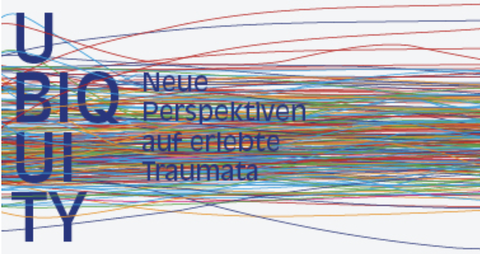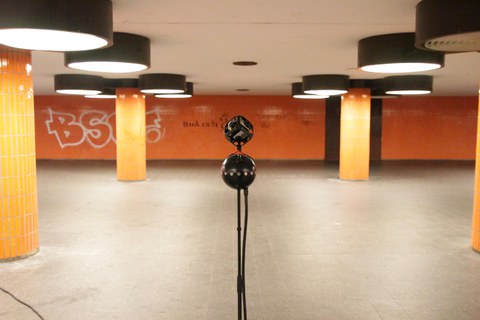Projects
Table of contents
Projekt „Lullabyte"
In the Lullabyte project, the effect of lullabies on sleep will be examined combining methods from neuroscience, machine learning and musicology.
MSCA Lullabyte DN
Coordinator: Jun.-Prof. Dr. Miriam Akkermann (TU Dresden)
Members of the Network: TU Dresden (GER), Radboud University Medical Center from the Netherlands (NL), the University of Stuttgart (GER), Aarhus University from Denmark (DK), the FEMTO-STInstitute and the Paris Brain Insitute from France (F), Universitat Pompeu Fabra from Spain (SPA), the Royal Institute of Technology from Sweden (SVE), Université de Fribourg from Switzerland (CH) and the Berlin-based start-up Endel (GER).
Project duration: November 2022 - October 2026.
More information here.
A total of ten doctoral students will be trained.
The MSCA Doctoral Network "Lullaybte" is funded by Horizon Europe (HORZION).
Lullabyte Endel
Principal investigators: Jun.-Prof. Dr. Miriam Akkermann (TU Dresden)
Research Assistants: Uğur Can Akkaya (TU Dresden)
Project duration: August 2022 – April 2023
This sub-project is conducted in cooperation with the Berlin-based Start-up Endel.
Lullabyte Pre
Principal investigators: Jun.-Prof. Dr. Miriam Akkermann (TU Dresden), Prof. Dr. Martin Dresler (Donders Institute / Radboud University Medical Center, Nijmegen), Prof. Dr. Dirk Pflüge (Stuttgart University).
Research Assistants: Uğur Can Akkaya (TU Dresden), Çağatay Demirel (Donders Institute Sleep and Memory Lab)
Project duration: April 2020 – Feb 2023
The Pre-study is supported by Die Junge Akademie.
Projekt „Play it again"
Principal investigator: Jun.-Prof. Dr. Miriam Akkermann
Research assistants: Eunice Martins, Tim Neuser
Project start: October 2017 – August 2022
In this project the concept of (historically informed) performance practice is examined, asking for structures or inherent guidelines that form performance practices of certain musical styles in the 21st century. Observed examples derive hereby from early Baroque music as well as early Mixed Music.
An inherent research question is, what role documentation and archiving of musical works play in this scenario. The two research strands "performance practice" and "archiving" are therefore brought together via the question of reproducibility: It is true that unsecured sources, (new) technical developments, and artistic fashions have always influenced re-performances of compositions from all eras?
Projekt „Ubiquity"
Organisation: Jun.-Prof. Dr. Miriam Akkermann, TU Dresden, Prof. Dr. Philipp Kanske, TU Dresden, Prof. Dr. Eva Alisic, Melbourne University
Installation: Miriam Akkermann und Andre Bartetzki
Studentische Mitarbeit: Vanessa Kluge, Sören Frickenhaus (TU Dresden)
Project date: 2019
Ausgangspunkt für die Audio-Installation, die von Miriam Akkermann in Zusammenarbeit mit dem Programmierer und Komponisten Andre Bartetzki erarbeitet wurde, ist eine Studie zur Trauma-Verarbeitung bei Kindern der Psychologin Eva Alisic von der University of Melbourne ist. Das Basis-Material für die Installation bilden Audio-Files, die für die Untersuchung in den Familien aufgenommen wurden und die in kurzen Ausschnitten Auszüge aus dem Alltag der Kinder nach den erlebten Traumata wiedergeben. So sind beispielsweise Fernsehgeräusche ebenso vernehmbar wie Aufnahmen des Essens, Schlafens und von Gesprächen. Die künstlerische Zusammenstellung dieser Klänge bezieht sich dabei auf die in der Studie ermittelten durchschnittlichen Häufigkeit des Auftretens der verschiedenen Situationen. Auf diese Art und Weise sollen zum einen die wissenschaftlichen Erkenntnisse in neuer Form präsentiert werden, und zum anderen eine Klang-Installation geschaffen werden, die auch ohne Hintergrundwissen ein auditives Erlebnis schafft.
Die Installation entstand in Kooperation mit dem Symposium„Ubiquity“– Neue Perspektiven auf erlebte Traumata, das aktuelle wissenschaftliche Erkenntnisse zur Psychologie von Traumatisierungen berichtet. Auf dem am 3.11.2019 in Dresden von Philipp Kanske organisierten Symposium sind Vorträge der Traumaforscher Andreas Maercker, Thomas Ehring, Eva Alisic und anderer zu hören.
Die Installation Installation „Ubiquity“ wurde an folgenden Orten gezeigt:
11. bis 13.12.2019 in der DAX Gallery in Melbourne
Vernissage und Vorträge: 12.12.2019, 18 - 21 Uhr
30.10 bis 3.11.2019 in der Blauen Fabrik in Dresden
Vernissage 29.10.2019, 20 - 23 Uhr
Symposium „Ubiquity– Neue Perspektiven auf erlebte Traumata“ : 3.11.2019, 10 - 15 Uhr
Mehr Infos unter https://www.diejungeakademie.de/aktivitaeten/projekte/installation-und-symposium-ubiquity/
Das Projekt wurde gefördert von Der Jungen Akademie.
Projekt „VR-Audio"
Organization team: Jun.-Prof. Dr. Miriam Akkermann, TU Dresden, Dr. Christian Stein, Humboldt University Berlin, Dr. Jens Loebel, Universität Bayreuth
The project was carried out March 2017 – June 2020.
Team SoSe 2017 – SoSe 2018: Andreas Egginger, Linus Harwig, Laura Rosinger, Cai Kuhn (Students at Bayreuth University), and Felicitas Fiedler (Student at TU Berlin)
This project combines an artistic research on challenges and possibilities of VR-Audio in combination with VR-technology with the idea of a game for ear training.
Our goal is to create a Beta-Version of a game for VR-technology. The structure is based on a escape game: The player is set within a 360° video scene. When turning the head, the audio changes, ranging from modified acoustics to the real audio recording. The player has to listen carefully and find the right listening angle in order to finish the level.
For the different levels, we record with a 360° camera and a 360° microphone.
In total, there will be recordings of 10 locations, 4-6 of them will end up in the first outline of the game.
This is a non-profit research project, which will be released on creative commons in a VR game store. The project is part of the VR-Audio Berlin research network.
Unfortunately, we are not able to pay fees, but as we are a research project, you can get the recordings/audio we made of and with you. In return, we would like to use the video and audio material for our game. We guarantee that we will give credits to all our protagonists, musicians and composers, as well as to our hosting locations and sponsors.
The project was funded by Die Junge Akademie.


